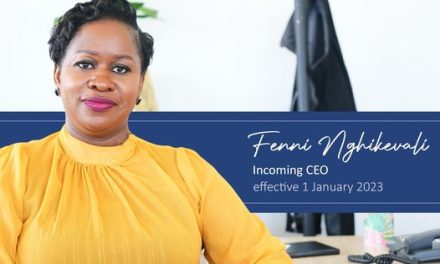
From businesswoman to presidential candidate: Ally Angula’s journey

By Michel Haoses.
In a recent exclusive interview with the Namibian Economist, presidential hopeful, Ally Angula delved into pressing issues such as homelessness and the preliminary report of the latest census, shedding light on her transition from a successful businesswoman to a contender for the presidency in the forthcoming 2024 elections.
As the founder of the “A Better Life” movement, Angula champions the dignity of all Namibians, aiming to address societal challenges from a political platform.
Reflecting on her journey, Angula emphasized her longstanding commitment to empowering people for economic freedom, citing her departure from KPMG to establish a business focusing on job creation.
When questioned about her vision for the presidency, Angula stressed the reorientation of governmental roles, advocating for a more proactive approach to development. She emphasized the importance of putting economic resources directly into the hands of individuals, believing that empowering citizens financially would lead to greater economic opportunities.
“As we are living in a cashified community they will be advocating to put cash in the hands of people because of the belief that the individual would know more what opportunities are available to them and say if I do this I can have an income tomorrow,” she said.
She further reiterated that creating a conducive environment for success and advancement cannot be done with words but by putting the power in the hands of people through funding businesses and giving people the resources to do what they need to do.
Addressing the issue of homelessness, Angula highlighted the distinction between true homelessness and makeshift housing resulting from financial constraints.
A recommendation Angula gave was rather than buying three commercial farms to settle three families, buy three commercial farms on the outskirts of Windhoek and split them into 1000 square metres of land allowing each individual to receive a portion. Additionally, when the person sitting on the 1000 square metre piece of land decides to go to the bank for a loan, this land can be used as security and start a business solving economic and housing.
Angula also underscored the need for shelters to support vulnerable individuals and tackle poverty-related issues such as ‘street children’.She explained that the only way these kids can be taken off the streets is by addressing the underlying issue which is poverty as these kids have learned to get things that have been withheld from them.
Commenting on the recent National Population and Housing preliminary census results and low growth in GDP Angula said “If your population is growing at the right that it is grown and your economy that is supposed to supposed to support this people has grown at about 3.9 % versus your growth in the population of about 43%, you have got a crisis on your hands because everybody depends on this economy”.
Meanwhile, in terms of governance structure, Angula expressed caution against reducing the size of the cabinet, instead advocating for a revamping of ministries to better address existing challenges.
Finally, Angula revealed plans to conduct a nationwide survey on the implementation of a basic income grant, underscoring her commitment to ensuring economic security for all Namibians regardless of age or income level.
As Angula transitions from the boardroom to the political arena, her platform reflects an understanding of the challenges facing Namibia, coupled with bold proposals for inclusive and sustainable development.













































